This article was medically reviewed by Luba Lee, FNP-BC, MS. Luba Lee, FNP-BC is a Board-Certified Family Nurse Practitioner (FNP) and educator in Tennessee with over a decade of clinical experience. Luba has certifications in Pediatric Advanced Life Support (PALS), Emergency Medicine, Advanced Cardiac Life Support (ACLS), Team Building, and Critical Care Nursing. She received her Master of Science in Nursing (MSN) from the University of Tennessee in 2006.
There are 23 references cited in this article, which can be found at the bottom of the page.
This article has been viewed 203,554 times.
Clowns. Spiders. Heights. Needles. Dentists. Flying. What do these things all have in common? They're some of the most common phobias. A phobia is actually a type of anxiety disorder characterized by an excessive or unreasonable fear of a certain situation or object. Not to worry—we’re here to help you face and conquer your phobias with careful planning, handy techniques, lifestyle changes, and other strategies.
Steps
Expert Q&A
-
QuestionHow can I overcome my fear of snakes?
 Luba Lee, FNP-BC, MSLuba Lee, FNP-BC is a Board-Certified Family Nurse Practitioner (FNP) and educator in Tennessee with over a decade of clinical experience. Luba has certifications in Pediatric Advanced Life Support (PALS), Emergency Medicine, Advanced Cardiac Life Support (ACLS), Team Building, and Critical Care Nursing. She received her Master of Science in Nursing (MSN) from the University of Tennessee in 2006.
Luba Lee, FNP-BC, MSLuba Lee, FNP-BC is a Board-Certified Family Nurse Practitioner (FNP) and educator in Tennessee with over a decade of clinical experience. Luba has certifications in Pediatric Advanced Life Support (PALS), Emergency Medicine, Advanced Cardiac Life Support (ACLS), Team Building, and Critical Care Nursing. She received her Master of Science in Nursing (MSN) from the University of Tennessee in 2006.
Board-Certified Family Nurse Practitioner If your phobia is severe, you may need to seek help from a qualified medical professional. Ask them if you can benefit from cognitive behavioral therapy (CBT). This therapy helps you understand your fear, change the way you think about it, and come up with new coping techniques. You'll usually need twelve to fifteen sessions over a few months.
If your phobia is severe, you may need to seek help from a qualified medical professional. Ask them if you can benefit from cognitive behavioral therapy (CBT). This therapy helps you understand your fear, change the way you think about it, and come up with new coping techniques. You'll usually need twelve to fifteen sessions over a few months.
Warnings
- These measures do not stand-in for medical help, which may be required for severe phobias. Anxiety and stress can have hazardous effects on your nervous system and blood pressure. Professional therapies or medications may be required to treat your condition.⧼thumbs_response⧽
References
- ↑ http://www.anxietycare.org.uk/docs/self.asp
- ↑ http://www.anxietycare.org.uk/docs/self.asp
- ↑ http://www.psychologytoday.com/articles/200307/the-goals-guide-us
- ↑ http://www.anxietycare.org.uk/docs/self.asp
- ↑ http://www.helpguide.org/articles/anxiety/phobias-and-fears.htm
- ↑ http://www.csulb.edu/~tstevens/Desensit.htm
- ↑ http://www.guidetopsychology.com/sysden.htm
- ↑ http://www.anxietybc.com/sites/default/files/FacingFears_Exposure.pdf
- ↑ http://www.helpguide.org/articles/anxiety/phobias-and-fears.htm
- ↑ https://www.helpguide.org/articles/anxiety/phobias-and-irrational-fears.htm
- ↑ https://sleepfoundation.org/excessivesleepiness/content/the-complex-relationship-between-sleep-depression-anxiety
- ↑ https://www.helpguide.org/articles/sleep/sleep-needs-get-the-sleep-you-need.htm
- ↑ https://www.adaa.org/living-with-anxiety/managing-anxiety/exercise-stress-and-anxiety
- ↑ http://jamanetwork.com/journals/jamainternalmedicine/fullarticle/1809754
- ↑ https://www.mindful.org/mindfulness-how-to-do-it/
- ↑ https://www.healthyplace.com/blogs/anxiety-schmanxiety/2015/12/caffeines-effects-on-anxiety/
- ↑ http://www.healthline.com/health/alcohol-and-anxiety
- ↑ http://www.ncbi.nlm.nih.gov/pubmed/18066139
- ↑ http://www.realnatural.org/vitamin-c-elevates-moods-reduces-distress-and-anxiety/
- ↑ https://wellnessmama.com/beauty/sugar-scrub/
- ↑ http://www.sheknows.com/home-and-gardening/articles/1050763/make-your-own-scented-oil-diffuser
- ↑ http://www.personaltransformation.com/calming_anxiety.html
- ↑ https://www.psychology.org.au/for-the-public/Psychology-Topics/Anxiety
- ↑ http://www.psychologytoday.com/blog/fighting-fear/201206/overcoming-phobias-6-important-principles
- ↑ http://www.rcpsych.ac.uk/mentalhealthinfo/problems/anxietyphobias/anxiety,panic,phobias.aspx
- ↑ http://www.mayoclinic.org/healthy-lifestyle/stress-management/in-depth/massage/art-20045743
About This Article
To overcome a phobia, try talking to friends or relatives so you have someone to help you when you're feeling scared. If you're alone, say a phrase or mantra to help calm your anxiety. You can also take a few deep breaths to slow your heart rate and calm yourself down. Additionally, try to visualize a calming scene, like a quiet garden, which is something you can do anywhere, at any time. Alternatively, find a support group in your local area for people who have the same phobia as you so you can talk about coping strategies. For tips from our Medical co-author on how to overcome phobias with the desensitizing technique, read on!






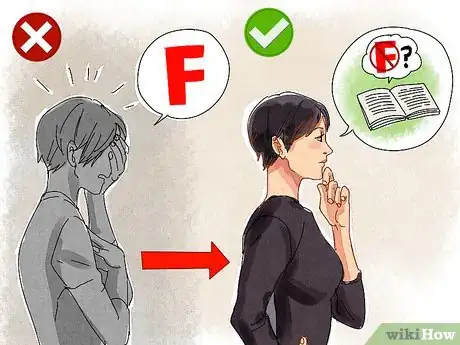

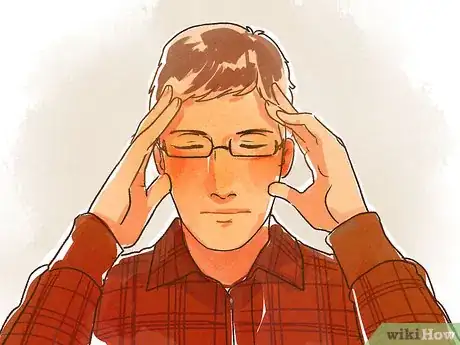


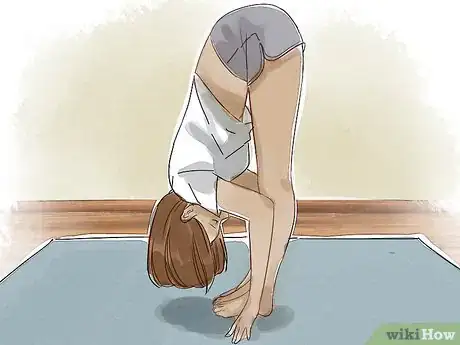
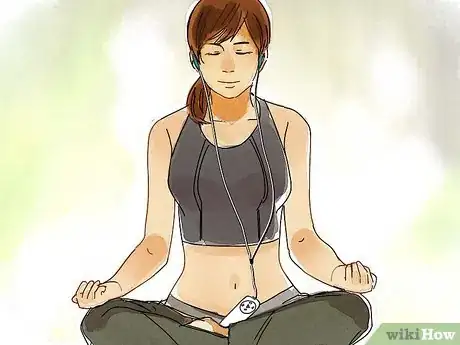



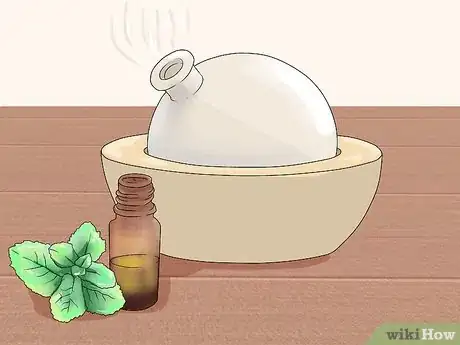
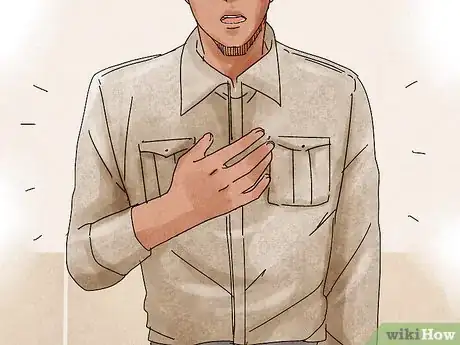


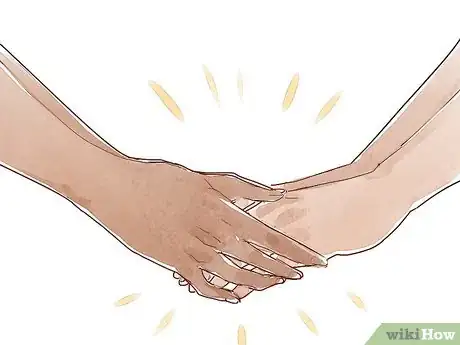
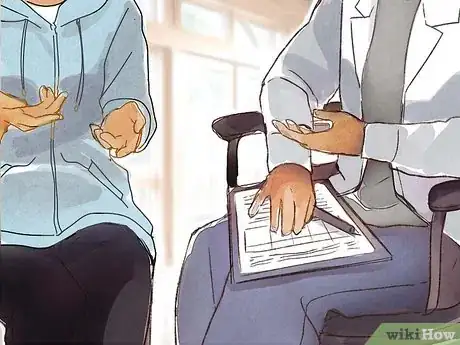






























































Medical Disclaimer
The content of this article is not intended to be a substitute for professional medical advice, examination, diagnosis, or treatment. You should always contact your doctor or other qualified healthcare professional before starting, changing, or stopping any kind of health treatment.
Read More...